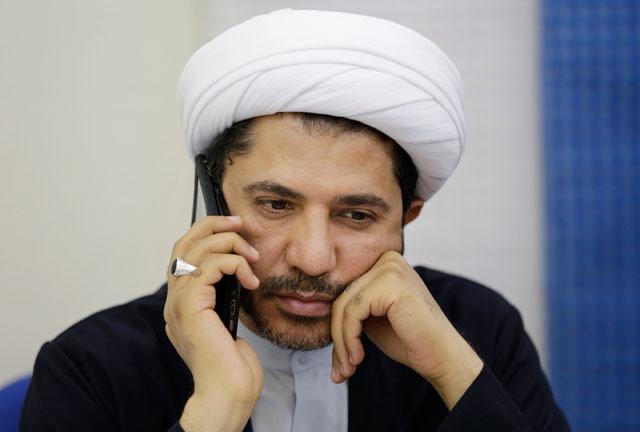You are here
Bahrain opposition confirms it will boycott election
By Reuters - Oct 11,2014 - Last updated at Oct 11,2014
MANAMA — Four opposition groups including the largest, Al Wefaq, will boycott a parliamentary election scheduled for November in Bahrain to protest what they described as a vote where the results would be "fully controlled by the ruling authority".
Wefaq, which has strong links to Bahrain's Shiite majority, confirmed on Saturday the opposition would not take part in the poll because the elected parliament will not have enough power and because voting districts favour the Sunni minority.
"Any elections process without a peaceful transfer of power within a system of constitutional monarchy, which is the current situation, will be unilaterally run and based on an unfair electoral system," the opposition groups said in a statement.
Information Minister Samira Rajab did not respond directly to the charge when contacted by Reuters, but referred to her statement on state media on Friday in which she said that all segments of Bahraini society were able to take part in the poll.
She said in the remarks carried by Bahrain News Agency that groups which boycotted elections continued to take part in politics in other ways, such as through municipal councils.
"They tend to raise the banner of a boycott in an attempt to open the door to foreign interference in our domestic affairs," she was quoted as saying by BNA.
The opposition also accused the authorities of using immigration to change the country's sectarian balance in order to boost support for the Sunni Al Khalifa ruling family, a charge the government has always denied.
Wefaq in May threatened to boycott the election, which has been set for November 22, but continued to take part in sporadic reconciliation talks with the government.
Bahrain has been shaken by persistent unrest since mostly Shiite Muslim demonstrators, who complain of political marginalisation, took to the streets in February 2011 to call for greater democracy.
Stalled reconciliation talks between the Al Khalifa and the Shiite opposition were revived early this year but later appeared to stall following prosecutions of Wefaq officials on a variety of charges.
In July the government went to court to try to suspend Wefaq's activities, saying it had broken both the law and its own statutes, a move the group's leader Sheikh Ali Salman described as an attempt to force it to take part in the coming election. A verdict has not yet been reached.
Bahrain, an ally of fellow Sunni monarchy Saudi Arabia and home to the US Fifth Fleet, accuses Shiite Gulf power Iran of stirring its unrest and says it has made many reforms since 2011. Iran denies those charges.
Shiite activists say members of the majority sect are subjected to systematic political and economic discrimination, a charge the government denies.
Related Articles
Bahrainis voted in the second round of a parliamentary election on Saturday, a poll boycotted by the tiny Gulf monarchy's Shiite-led opposition which accuses the government of gerrymandering and says parliament lacks powers.
A Bahraini court banned the Gulf state's main opposition movement for three months Tuesday, just weeks before a parliamentary election the group had already said it would boycott.
Bahrain’s opposition parties will boycott parliamentary elections due to take place this year unless the government guarantees the vote will reflect the will of the people, a statement from the opposition said on Saturday.















